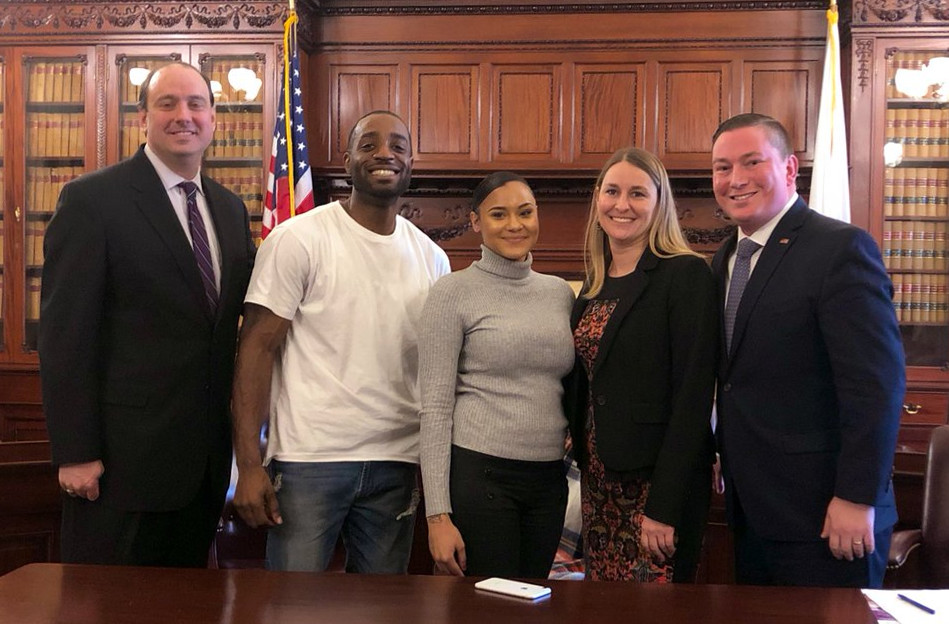
BOSTON – As Carlos was getting ready to come back home from a stretch in state prison, it seemed like everything on the outside was moving faster than he remembered. Or maybe he was moving slower.
“In prison, you’re shut off from time,” he said during a packed meeting of lawmakers and legislative aides at the State House on March 19. “When you’re released, there’s a time-lapse.”
Getting back up to speed to find a job and a place to stay felt overwhelming. Looking back three years later, the time he spent in the Brooke House reentry program was a turning point not just for his transition but his whole life. With support and encouragement from the staff and other residents, he pushed himself, got his license for the first time, and got a job working in a restaurant in less than a month. He worked hard and was quickly promoted.
Read a statement in support of additional funding for community-based residential reentry funding signed by dozens of individuals and organizations.
Today, he’s still working at the same restaurant and stops by the program regularly to say hello to staff and thank them for helping him reshape his future.
“I was allowed to have some structure and not be thrown out into the fire,” he said. “I was allowed to pace myself. I didn’t have to do everything myself.”
Carlos spoke during a discussion on reentry services hosted by the Legislature’s Criminal Justice Reform Caucus, sharing his own experience as lawmakers consider future funding for reentry programs like Brooke House. Reentry programs offer a mix of accountability and support for men and women as they prepare to return to the community after incarceration to help them access housing, employment, substance use and mental health counseling, and more.
“If we’re not doing those things, it becomes a de facto life sentence,” said state Rep. Dan Cullinane, D-Dorchester. “It’s a commonsense, intentional investment in individuals’ lives getting better.”
The Legislature last year included $5 million for community-based residential reentry programs, up from $90,000 the previous year. That money has already shored up a network of existing programs that had been scaling back in recent years. Cullinane supports increasing reentry funding to $7 million in the fiscal year 2020 budget.
With the increased funding this year, Community Resources for Justice plans to restore full services at Brooke House, which had been cut back due to a lack of funding; reopen the McGrath House reentry center for women; and launch a new program in Springfield in partnership with the Hampden County Sheriff’s Office.
“This is huge progress over last year when we were closing reentry programs due to lack of funding, and worrying about closing more programs,” CRJ Director of Innovation, Implementation, and Development Gabriella Priest said during the caucus’ meeting.
Priest said reentry programs are one of the most effective strategies to reduce recidivism, and CRJ’s reentry programs follow an evidence-based model that helps individuals overcome barriers and achieve success. Brooke House Case Manager Claire Serrano described the attention to residents’ needs, and the supportive case planning process that works with residents to give them the tools to be successful.
“I care a lot about community reentry because it works,” said state Rep. Liz Miranda, D-Boston. “We need to invest in it.”
State Sen. Jamie Eldridge, D-Acton, agreed.
“We need to fund these programs to really make an impact,” he said.
Carlos said the support and structure reentry programs offer can help many more people like him.
“At Brooke House, I learned I can be a leader. This was from the staff and the case workers,” he said. “I had to really reflect on what they were telling me, and I took it and ran with it.”
On a scale of 1 to 10, Carlos rated his time at the Brooke House reentry program as a 10.
“There are individuals who are doing time and want to make a smooth transition back into the community,” he said.